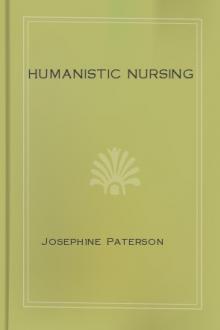author - "Loretta T. Zderad"

s re-issue of Paterson and {v} Zderad's classic work will help to remind us of another way of developing our power. Perhaps we can, once again, look for and call for authentic dialogue with our patients, our students, and our colleagues. Paterson and Zderad are clear in their method: discuss, question, convey, clarify, argue, and reflect. They remind us of our uniqueness and our commonality. They tell us that it is necessary to do with and be with each other in order for any one of us to grow. They help us celebrate the power of our choices.
Is it ironic and fortunate that Humanistic Nursing should be re-issued now when it is needed even more than it was during the late 1970s? Then, humanitarianism was in vogue. Now, it is under attack as a secular religion.
Today, the technocratic imperative infiltrates an ever-increasing number of our lived experiences; and it becomes more difficult to ignore or dismiss Habermas's analysis that all interests have become technical rather than human.[6]

s re-issue of Paterson and {v} Zderad's classic work will help to remind us of another way of developing our power. Perhaps we can, once again, look for and call for authentic dialogue with our patients, our students, and our colleagues. Paterson and Zderad are clear in their method: discuss, question, convey, clarify, argue, and reflect. They remind us of our uniqueness and our commonality. They tell us that it is necessary to do with and be with each other in order for any one of us to grow. They help us celebrate the power of our choices.
Is it ironic and fortunate that Humanistic Nursing should be re-issued now when it is needed even more than it was during the late 1970s? Then, humanitarianism was in vogue. Now, it is under attack as a secular religion.
Today, the technocratic imperative infiltrates an ever-increasing number of our lived experiences; and it becomes more difficult to ignore or dismiss Habermas's analysis that all interests have become technical rather than human.[6]